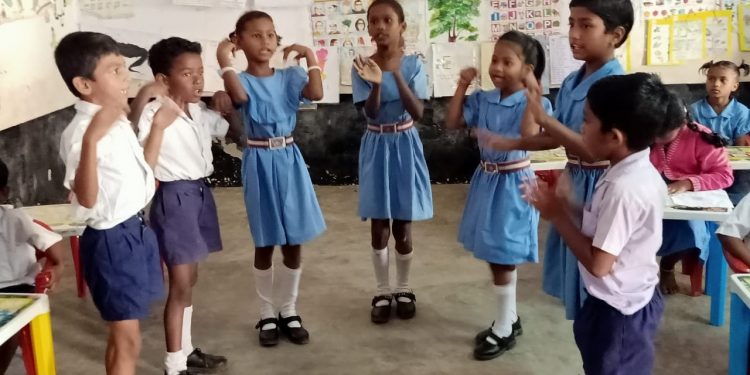Berhampur: Ganjam district administration launched its novel project named ‘No Bag Day’ Saturday on a pilot basis. Following the footsteps of neighbouring states Andhra Pradesh and Karnataka, the Ganjam district administration implemented it and this is the first-of-its-kind scheme in the state.
Primary school students of around 454 schools of the district did not carry heavy bags or study materials to schools Saturday and the same will be repeated every Saturday from now.
In the first phase, the initiative was started in 20 primary and upper primary schools each of the 22 blocks of the district as well as in some schools of Berhampur city. It will be later extended to other primary and upper primary schools. This initiative by Ganjam district administration has earned praises from various quarters of the society including students and teachers.
Collector Vijay Amruta Kulange inaugurated this project at Putigoplapur School in Chhatrapur block. Kulange said the aim was to take school education beyond “chalk and talk”.

On the inaugural day, the Collector made aware the students of the novel coronavirus and suggested them to use masks while coming to school.
Notably, ‘No Bag Day’ was launched to impart education to the students in a completely different manner in place of the conventional one so that they can perform other co-curricular activities in a creative and comfort zone.
The first (class) period Saturday for the students was physical education in the form of yoga and mass drill. Second period has been earmarked for health and sanitation awareness through competition, general knowledge session, plantation and toilet training.
In the third period, children learnt moral and value education through story-telling, book-reading, creative writing and debate sessions. The fourth period was to educate students on eradication of superstitions and myths by interactive sessions.
The ‘basic of women’s empowerment’ was the theme of the fifth period to promote education of girls, stop child marriages and create awareness about women-friendly projects of the government and administration. The last period was named the ‘zero period’ during which the students performed arts and crafts, rangoli, model construction and studied logical thinking.






































